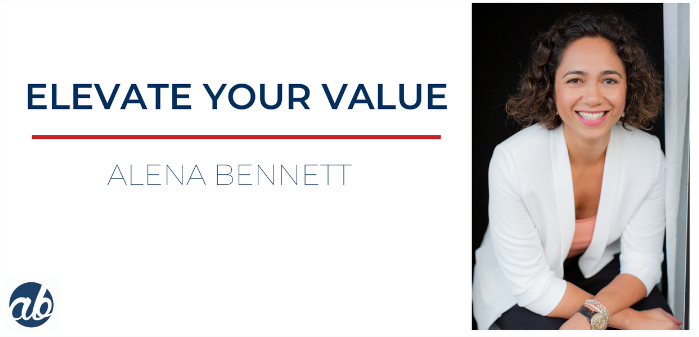There's no one way to measure it. Sure, we have market value, net book value and for those in life insurance, European Embedded Value, but at the end of the day, it's subjective. This week we've heard about the difficulties arising in measuring the value of technology company Canva - whose perspective is 'right'?
CFOs want to create value for their stakeholders and business. But what is value?
This is why when I work with CFOs I tell them this;
You need to be really clear on your unique value proposition.
You need a clear brand statement.
What's the value of creating a personal brand statement?
As a CFO you want to have a seat at the table, you want to be asked to take a seat, to be invited. You want to be proactively involved in all key stages of commercial conversations, not just brought in at the last minute for the 'finance sign-off'.
But for that to happen, you need to be clear about the value you can add and consistent in your approach to adding it.
And that's where your personal brand statement comes in.
When you have a unique value proposition statement, when your brand promise is clearly articulated, your stakeholders will invite you. They'll know what value you add and that will help them understand why to invite you. You'll quickly move up the phases of the CFO journey captured in my book, CFO of the future.
You'll be invited to the table more often, for the right conversations.
The power of focus, speed and impact
Let me give you an example.
I talk to dozens of CFOs each week. They will often reach out to me and say; 'hey, I'm looking for a job, if you see one please let me know.' (Even worse, they'll drop this in at the end of a general 'catch-up'.)
This is a hard ask for a number of reasons.
• I get a lot of people reaching out and I'm not in the business of recruitment.
• Honestly, most CFO resumes look the same.
• And finally, they don't tell me what makes them different, in any meaningful, compelling or succinct way.
There are exceptions though. Last week I came across a job ad and decided to forward it to a CFO I have been working with.
Why? Because as soon as I read it I knew exactly where it needed to go.
She has developed over the last 6 months a really clearly articulated value proposition.
This job was 100 per cent for her. So I flicked it over and said, 'I think you should apply for this.'
I didn't have to think. I didn't even consider sending that job out to any of my other CFOs. I sent it specifically to her because her brand statement was living rent-free in my mind, so she was the first thought I had when this opportunity presented itself.
And that is the focus. That is the speed. That is the impact you get when you have a unique value proposition.
This is why you need a clear brand statement
What are you known for in your business?
We are getting a little ahead of ourselves. Let's take a step back for a moment.
If I were to ask the people you work with what you're known for, what would they say?
• Are you the person who helps creates order from chaos?
• Are you the person who will bring people along a journey to create top-line growth effects?
• Do you cut through the dysfunction across the executive team and galvanise the diverse views around table?
• Or... are you the Chief Fixing Officer?
What outcomes are your CEO, Board and stakeholders 'buying' from you? What's the value they get from working with you? What value would you attribute to that? This is such an important conversation, but challenging, because it comes down to self-identity.
It's impossible to create value if you don't know your own value
Having a clear brand statement can help guide the conviction you have in your work, and the confidence your stakeholders have in you. Your brand statement is so much more than an opening paragraph on your resume or the top line in your LinkedIn.
How to develop a personal brand statement
When you're crafting a personal brand statement, it's important to follow these three rules.
1. Identify your unique value proposition. Keep it real. Avoid jargon and being generic. The '5 whys' technique founded by Sakichi Toyoda is one of the ways we approach this with our CFO community.
2. Keep it below three sentences. Succinct sells.
3. Test your professional brand against your personal goals. You want it to be authentic, meaningful and aspirational. I cover this in my book, Meaning Matters.
That's it. It sounds simple, but creating a personal brand statement just may be one of the most difficult professional development exercises you ever do.
Claim your seat at the table with intention and conviction. Define your value.
What outcomes are you known for?
What outcomes do you want to be known for?
Do the people that need to know... know?


